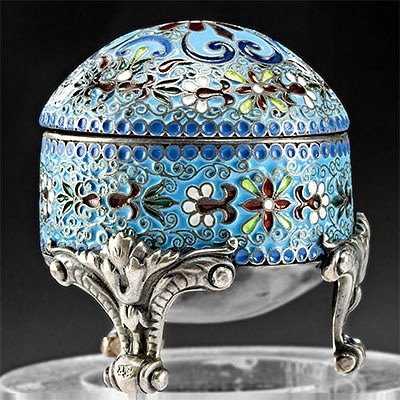Egyptian Gesso'd Wood Mummy Mask
Lot 52
About Seller
Artemis Gallery
686 S Taylor Ave, Ste 106
Louisville, CO 80027
United States
Selling antiquities, ancient and ethnographic art online since 1993, Artemis Gallery specializes in Classical Antiquities (Egyptian, Greek, Roman, Near Eastern), Asian, Pre-Columbian, African / Tribal / Oceanographic art. Our extensive inventory includes pottery, stone, metal, wood, glass and textil...Read more
Categories
Estimate:
$1,200 - $1,800
Absentee vs Live bid
Two ways to bid:
- Leave a max absentee bid and the platform will bid on your behalf up to your maximum bid during the live auction.
- Bid live during the auction and your bids will be submitted real-time to the auctioneer.
Bid Increments
| Price | Bid Increment |
|---|---|
| $0 | $25 |
| $300 | $50 |
| $1,000 | $100 |
| $2,000 | $250 |
| $5,000 | $500 |
| $10,000 | $1,000 |
| $20,000 | $2,500 |
| $50,000 | $5,000 |
| $100,000 | $10,000 |
| $200,000 | $20,000 |
About Auction
By Artemis Gallery
Apr 1, 2021
Set Reminder
2021-04-01 12:00:00
2021-04-01 12:00:00
America/New_York
Bidsquare
Bidsquare : Odd Unusual Finds | Antiquity to Present Day
https://www.bidsquare.com/auctions/artemis-gallery/odd-unusual-finds-antiquity-to-present-day-6742
Ancient, Asian, Pre-Columbian, Ethnographic, American, and everything in-between Wild, weird, strange, interesting - who knows what you'll find. All pieces guaranteed to be as described. Convenient in-house shipping. Artemis Gallery info@artemisgallery.com
Ancient, Asian, Pre-Columbian, Ethnographic, American, and everything in-between Wild, weird, strange, interesting - who knows what you'll find. All pieces guaranteed to be as described. Convenient in-house shipping. Artemis Gallery info@artemisgallery.com
- Lot Description
Egypt, New Kingdom to Ptolemaic Period, ca. 1550 to 30 BCE. A beautiful mummy mask that is expertly carved from cedar and covered in a layer of white gesso decorated with thick, opaque pigments of peach, white, and black hues. Capped with a rectangular headdress, the elegant countenance exhibits large, almond-shaped eyes beneath sweeping brows, full lips, a flat nose, and a petite chin. The cheeks roll backwards towards the temples and where the ears were at one time. Dowel holes on the headdress and verso still retain remains of the original dowels and illustrate how the mask was attached to a larger coffin lid. A sensuous mask showcasing the quintessential ancient Egyptian funerary artistry! Size: 6.625" W x 10" H (16.8 cm x 25.4 cm)
Ancient Egyptians believed it was of the utmost importance to preserve a body of the deceased, as the soul needed a place to reside after the death. Conservation of the body was done via mummification - a process involving the removal of internal organs that were placed in canopic jars, wrapping the body in linen, and then embalming. Death masks, such as this, were created so that the soul could recognize the body and return to it and, thus, were carved in the likeness of the deceased. Artisans used different materials. Earlier masks were carved from wood, while later ones were made of cartonnage, a material made from papyrus or linen and soaked in plaster which was then applied to a wooden mold, was used. Royal death masks, perhaps the most famous being that of Tutankhamen, were made from precious metals.
The mask was an essential part of the mummy, placed over the head to provide an idealized image of the deceased as they would be resurrected. This mask and others like it were traditionally carved from cedar. Interestingly, cedar wood was not native to Egypt. Egypt did not have verdant forests filled with tall trees, and unfortunately most of its native lumber was of relatively poor quality. Thus, they relied on importing to acquire hardwoods - ebony imported from Africa, cedar and pine from Lebanon. One fabulous obelisk inscription by Thutmose III attests to the luxury of treasured hardwoods. It reads as follows, "They brought to me the choicest products...consisting of cedar, juniper and of meru wood...all the good sweet woods of God's Land." The rarity of cedar meant that masks like this example were reserved for those who could afford them.
Provenance: private Kentucky, USA collection; private collection, New York City, New York, USA, 15 October 1948
All items legal to buy/sell under U.S. Statute covering cultural patrimony Code 2600, CHAPTER 14, and are guaranteed to be as described or your money back.
A Certificate of Authenticity will accompany all winning bids.
We ship worldwide and handle all shipping in-house for your convenience.
#163099Minor losses and abraded area to proper left periphery. Stable fissure from nose to chin and another on top of verso with a few minor fissures to wood throughout. A few apertures on periphery and verso. Expected nicks/chips and abrasions commensurate with age. Otherwise, nice with excellent remaining pigments.Condition
- Shipping Info
-
All shipping is handled in-house for your convenience. Your invoice from Artemis Gallery will include shipping calculation instructions. If in doubt, please inquire BEFORE bidding for estimated shipping costs for individual items.
-
- Buyer's Premium



 EUR
EUR CAD
CAD AUD
AUD GBP
GBP MXN
MXN HKD
HKD CNY
CNY MYR
MYR SEK
SEK SGD
SGD CHF
CHF THB
THB













